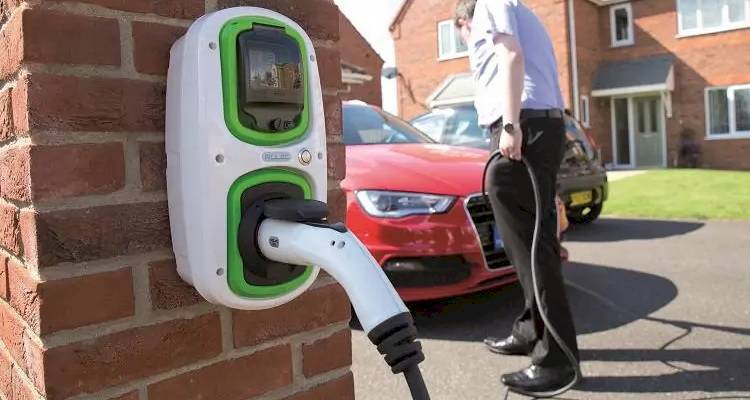Electric vehicles (EVs) are becoming increasingly popular due to their eco-friendly and cost-effective nature. With the growing number of EV owners, the demand for charging infrastructure has surged. One of the crucial aspects of owning an electric car is having a reliable and efficient charging solution. In this article, we will delve into the cost to install an electric car charger, providing you with a comprehensive guide on everything you need to know.
Understanding the Cost To Install Electric Car Charger
Before delving into the nitty-gritty of installing an electric car charger, it’s essential to understand the factors that influence the overall cost. The cost to install an electric car charger can vary significantly based on several key elements:
- Type of Charger: There are various types of electric car chargers, ranging from Level 1 (110-volt standard outlets) to Level 2 (240-volt home chargers) and Level 3 (fast DC chargers). The type you choose will have a direct impact on the cost.
- Charger Brand and Model: Different charger brands and models come with varying price tags. Some may offer advanced features and faster charging capabilities, which can affect the overall cost.
- Installation Location: The location where you plan to install the charger can impact the cost. Installing a charger in your garage or driveway might be less expensive than setting up a public charging station or installing one in a commercial property.
- Electrical Panel Upgrade: Depending on your home’s electrical capacity, you may need to upgrade your electrical panel to support the charger. This can significantly increase the installation cost.
- Permitting and Inspection Costs: Permits and inspections are often required when installing an electric car charger. These costs can vary by location and may add to the overall expense.
- Labor and Installation Fees: Hiring a professional electrician to install the charger is a necessary expense. Labor costs can vary based on the complexity of the installation.
- Additional Features and Accessories: The cost may also include additional features or accessories, such as wall-mounted brackets, cable management systems, and smart charging capabilities.
Determining the Installation Cost
Now that we’ve identified the key factors that contribute to the cost of installing an electric car charger, let’s take a closer look at some ballpark figures to give you a better idea of what to expect.
- Level 1 Charger: These are the simplest and least expensive chargers. The cost to install a Level 1 charger may range from $300 to $600, including labor.
- Level 2 Charger: This is the most common choice for residential charging. The cost to install a Level 2 charger typically ranges from $800 to $1,500, not including the charger’s purchase price.
- Level 3 (DC Fast Charger): These chargers are more expensive and complex. The installation cost for a Level 3 charger can be substantial, ranging from $10,000 to $50,000 or more.
It’s important to note that these are rough estimates and the actual cost can vary significantly based on the factors mentioned earlier. To get an accurate quote, it’s advisable to consult with a professional electrician or an EV charging installation company.
H2: Factors Affecting Installation Costs
The actual cost to install an electric car charger can be influenced by various factors:
- Electrical Panel Capacity: If your home’s electrical panel is not equipped to handle the additional load of a charger, you may need to upgrade it, which can be a substantial expense.
- Cable Length and Routing: Longer cable runs and complex routing can add to the labor costs.
- Permitting and Inspection Fees: These can vary based on local regulations and requirements. Check with your local authorities to determine the specific costs in your area.
- Charger Features: Chargers with advanced features like Wi-Fi connectivity or smartphone apps may cost more upfront but can offer added convenience and functionality.
Is It Worth the Investment?
While the cost to install an electric car charger can be a significant upfront expense, it’s essential to consider the long-term benefits. Charging your EV at home is not only convenient but also cost-effective compared to using public charging stations. Over time, the savings on fuel costs can offset the installation expenses.
Moreover, the availability of a home charger ensures that your electric vehicle is always ready to go, eliminating the need to wait in line at charging stations. It also provides the flexibility to charge your EV during off-peak hours, taking advantage of lower electricity rates.
Conclusion
In conclusion, the cost to install an electric car charger varies depending on multiple factors, including the type of charger, brand, installation location, and additional features. It’s crucial to obtain accurate quotes and consult with professionals to determine the exact cost for your specific situation.
While the initial expense may seem daunting, the long-term benefits of having a home charger are significant. It offers convenience, cost savings, and the assurance that your electric vehicle is always ready to hit the road.
Investing in an electric car charger is a step towards a greener and more sustainable future. As electric vehicles become increasingly popular, having a reliable charging solution at home is a wise choice for both your wallet and the environment.
